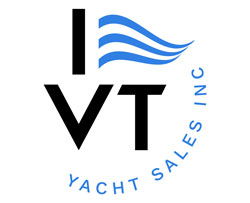YOUR YACHT AS A TAX DEDUCTION
What Savvy Yacht Owners Have Known For Years
Owning a new yacht is a great experience and the fun of owning it shouldn’t be diminished by the difficulty of paying for it. For years savvy yacht buyers have recognized that there is a completely legitimate way to significantly reduce the cost of owning a yacht by structuring ownership in a manner that allows you to write-off the purchase price of your yacht and deduct most ownership expenses (insurance, slip fee, maintenance) against your employment income. This can be done by placing the yacht in charter while still having it available for your use and following some basic tax law guidelines. In addition to providing a tax shelter, your yacht will also generate charter income to help offset ownership expenses.
Before reading on, we want you to understand that we are talking about placing your yacht in charter with a local charter company right here in California in a marina convenient for you. We’re not talking about placing a yacht in charter in some foreign destination (Caribbean, Mexico, South Pacific) where you will rarely have the opportunity to use it.
For an informative article on placing a yacht in charter in California read “Pros and Cons of Putting Your Boat in a Charter Fleet” by Managing Editor Andy Turpin in the July 2012 issue of Latitude 38.
Your Boat As A Business
First, let’s discuss the tax benefits of placing a yacht in charter and then we’ll discuss whether this will work for you. The key to understanding why yachts placed in charter can generate significant tax benefits is that these are the same tax benefits available to businesses for the purchase of business equipment. By placing your new yacht in a charter management program you are converting it from a personal asset to a business asset, essentially an equipment rental business. The relationship between you and the charter management company is structured so that you own the yacht and they assist you in managing your yacht rental business.
In recent years, Congress has significantly expanded the tax benefits available to businesses for equipment purchases in order to help stimulate the economy. These tax benefits are not available to people who own a yacht strictly for pleasure. While placing your yacht in charter changes the classification of it for tax purposes from a “personal” to a “business” asset, it does not prevent you from using your yacht.
At Cruising Yachts we have been placing new Jeanneaus and Hunters in charter for years and have seen these yacht owners reduce the costs of purchasing and owning their yacht by OVER 50% in many cases through a combination of tax deductions and charter income. Actual savings vary depending on the size of the yacht and the location in which it is placed in charter. Charter fleets in California and throughout the country, of which there are many with hundreds of yacht in charter, wouldn’t be in business if this arrangement did not withstand IRS review. Many of these charter companies have been in business for 20 years and longer.
Tax Shelter and Cash Flow Advantages of Charter Ownership
Here is a summary of the tax and income benefits available to the owners of new yachts purchased and placed in charter in 2012:
- Under Section 179 of the Internal Revenue Code, you can take a one-time expense deduction in the year of purchase equal to the purchase price of your yacht up to a maximum deduction of $139,000. This benefit is reduced for yachts priced over $560,000 (a subject beyond the scope of this article); plus
- You also can take a bonus depreciation deduction in the year of purchase of 50% of the amount of the purchase price over $139,000; plus
- You can depreciate the adjusted cost basis of your yacht (the balance of the purchase price after deducting the Section 179 expense deduction and 50% bonus depreciation deduction) over 10 years; plus
- You can deduct against your charter income and other employment income all ordinary and necessary charter related expenses including, for example, slip fees, insurance, repairs, loan interest, property tax, etc.; plus
- You will receive income from the charter of your yacht, the amount of which varies depending on the size of your yacht and the charter company you use.
As an example, on the purchase of a $350,000 yacht placed in charter in 2012, the total deduction available to you under paragraphs 1 – 3, above, is $265,600 resulting in a savings of $92,650 just in the year of purchase alone (assuming you are in the 35% tax bracket and can utilize the full deduction). To see how this deduction is calculated, see the Section 179 Tax Deduction Calculator.
This substantial tax deduction is an attractive tax planning opportunity if you are a highly compensated individual or receiving a large bonus or other large payment of ordinary income from active employment or the active conduct of a trade or business. It is not available to offset passive rental income, capital gains or IRA withdrawals.
AND THIS MAY BE THE BEST NEWS OF ALL..… the Section 179 and Bonus Depreciation deductions are exempt from the AMT calculation!
Professional Maintenance and Support
Placing your yacht in charter also is an excellent way to ensure that it will receive professional maintenance, service and care. Yachts in a charter fleet typically are washed weekly and cleaned inside and out after each charter. Routine maintenance is performed on a regularly scheduled basis and damage promptly repaired. For you, as the yacht owner, it means that you can spend your time sailing your yacht and not doing cleaning, maintenance and repairs.
Your charter management company will require that every charter customer demonstrate that they are qualified to operate the yacht being chartered in order to minimize the potential for any damage. Damage caused by a charter customer, up to the amount of the insurance deductible, is paid for by the damage deposit (cash or credit card) they make up front when chartering the yacht.
Is Charter Ownership Right For Me
In deciding whether charter ownership is right for you, ask yourself three questions:
- Am I paying income tax on taxable wages or salary from my work or business?
- Do I have a limited amount of time to use my yacht?
- Am I willing to allow qualified people to charter my yacht when I’m not using it?
If the answer to these questions is “yes” or “maybe”, then charter ownership is something you should consider. The reality is that most people use their yacht once a month, on average, leaving the balance of the month available for charter. Besides, if the yacht is paying for itself, it relieves the pressure some people feel to be constantly using it because of the cost. This actually lends to the enjoyment of the yacht when they do use it.
The Next Step
Charter management companies across California are actively pursuing new Jeanneaus and Hunters to place in their fleet. These are very popular charter yachts. If you have an interest in learning more about placing a new yacht in charter, contact a member of our sales staff. We understand that charter ownership is right for some people and not right for others, and we’re always glad to spend some time discussing it with you and answering your questions. If you decide to go ahead, we’ll help you select the yacht that is right for you and also help you place it with a reputable charter company in your area. We’ll walk you through the entire process and you’ll find that buying a yacht and placing it in charter is an easy and enjoyable experience.
Two Final Caveats
Two final caveats we ask you to keep in mind:
(a) We’re not tax advisors and are not able to give you advice on your specific tax situation. Everyone’s personal financial situation is different and you will need to evaluate the tax benefits of charter ownership for yourself and in consultation with your tax advisor.
(b) Placing a yacht in charter won’t enable you to afford a yacht that is well beyond what you might otherwise be able to afford. As a rule of thumb, if you have the income to afford a yacht at a certain price level, you’ll be in a position to take advantage of the tax benefits summarized above, thereby significantly reducing your cost of ownership.
If you have any questions or would like further information on purchasing and placing a new yacht in charter, contact us.



